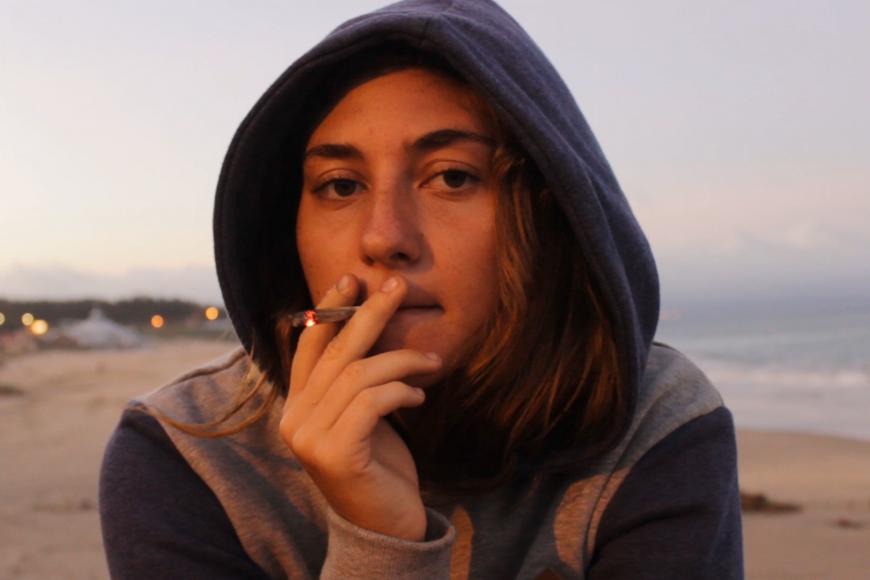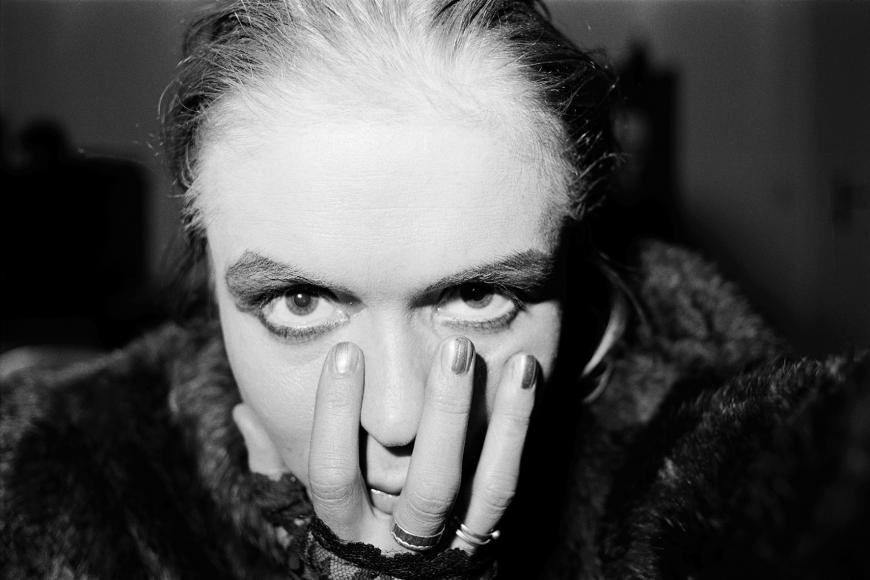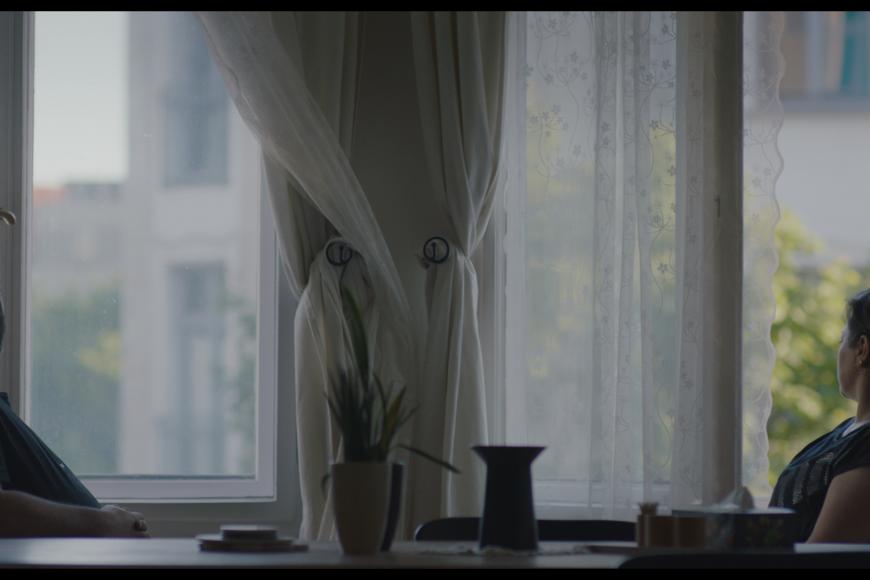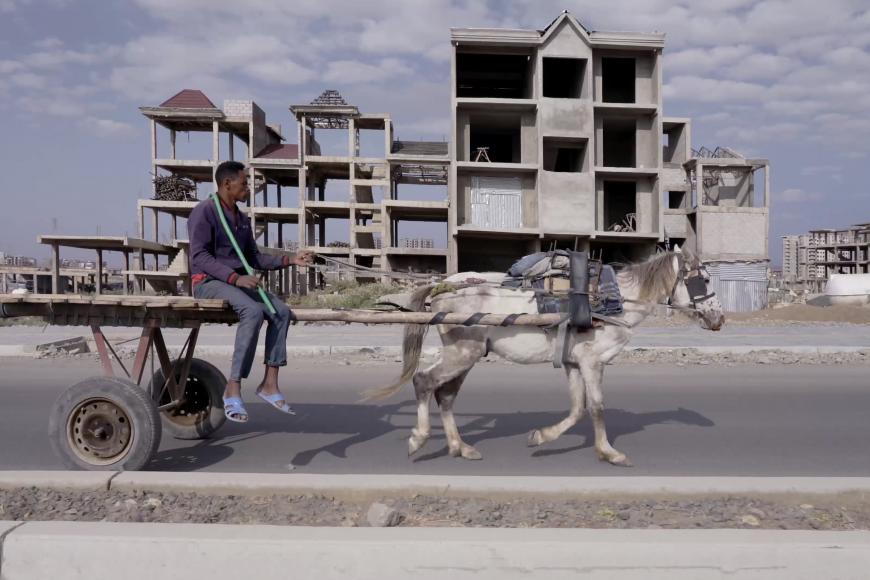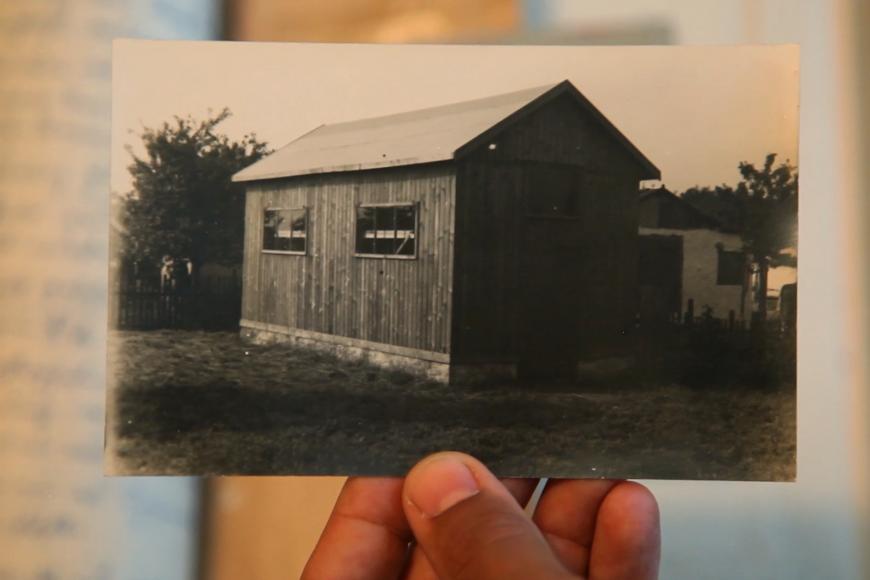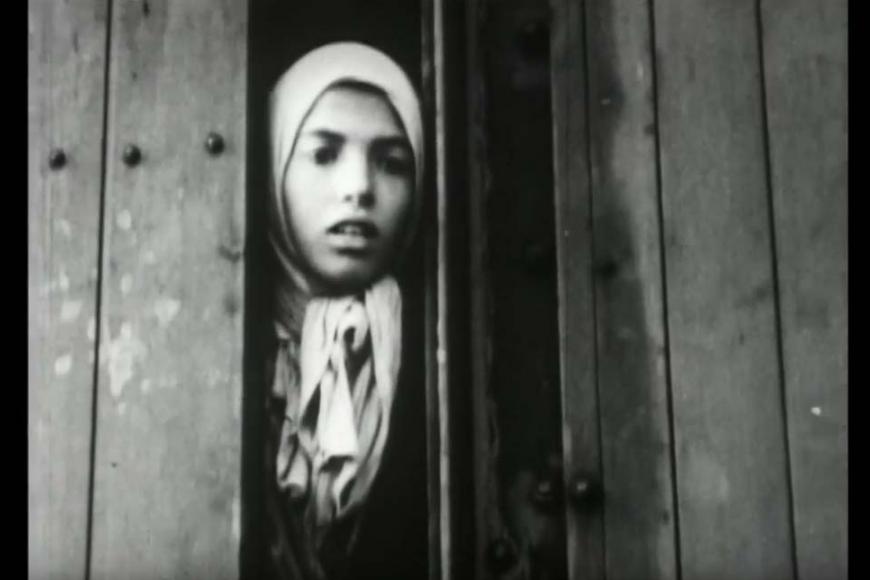
Respite
Anyone interned in the Nazi Jewish transit and collection camp Westerbork in the occupied Netherlands faced death: The trains left to Auschwitz from here, to Sobibór. In 1944, the camp commander ordered the prisoner and cameraman Rudolf Breslauer, who was murdered shortly afterwards, to film the camp, presumably as visual evidence of his own “work performance”. Harun Farocki, West German doyen of essayistic image criticism, used the surviving silent material to compose an equally silent sequence analysis commented only in title cards. It is surgery on the hidden narrative, not open heart surgery.

